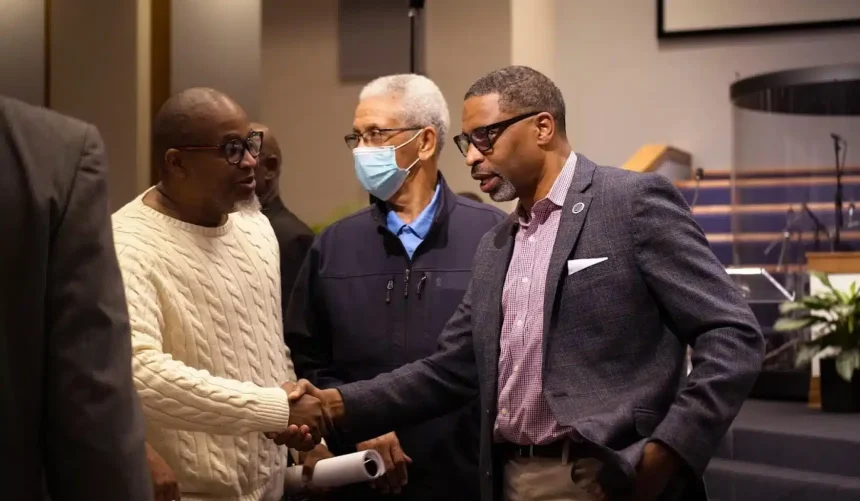The National Association for the Advancement of Colored People (NAACP) has filed a lawsuit against two controversial bills that create a separate court system for the newly expanded Capitol Complex Improvement District following Governor Tate Reeves’ approval on Friday.
Minutes after receiving Reeves’ signature, the NAACP filed a lawsuit against Senate Bill 2343 and House Bill 1020 in the U.S. District Court for the Southern District of Mississippi, stating that the legislation infringe on the rights of Jackson residents by stripping them of their voting power.

According to the NAACP, SB 2343’s expansion of the CCID will bring the majority of Jackson’s Black residents under the jurisdiction of Capitol Police, which is run by the state.
The NAACP also states that “the bill will also significantly restrict Mississippi residents’ ability to protest and hold demonstrations in and around buildings considered property of the state, requiring written approval from the Chief of the Capitol Police or the Commissioner of the Department of Public Safety before ‘any event’ occurs.”
As for HB 1020, the NAACP has expressed disapproval over how the bill — which creates a new court to hear all preliminary and criminal matters within the expanded District — requires that the judge be appointed by the Mississippi Supreme Court instead of by a vote. Each Circuit Judge for the Seventh Circuit Court District in Hinds County will also be placed in the positions by appointment.
NAACP President and CEO Derrick Johnson, who is a resident of Jackson, explained that even though both pieces of legislation are seen as a step towards fixing the nation’s broken law enforcement and criminal justice systems, the bills infringe on the constitutional rights of each citizen living in the capital city.
“The people of Jackson have been silenced and have faced years of discriminatory disinvestment and neglect from the state government which led to the major water crisis they are still dealing with to this day,” Johnson said. “If elected officials in Mississippi want to help address the results of their negligence and improve the lives of Jackson residents, they should start with completing improvements to Jackson’s water system, not undermining the constitutional rights of their citizens.”
House Minority Leader Robert Johnson III, D-Natchez, has also contended that any measure that would provide five appointed judges in an attempt to clear the backlog of criminal cases in the city of Jackson is unconstitutional and undermines city leadership.
“All judges shall be elected,” Johnson asserted. “It doesn’t matter where they are, and this bill still has appointed judges. Now, some people referred back to the fact that the Supreme Court has appointed judges for Jackson before, but even that’s unconstitutional. Nobody’s ever challenged it, but it is.”
According to Article 6, Section 153 of the Mississippi Constitution, “the judges of the circuit and chancery courts shall be elected by the people in a manner and at a time to be provided by the legislature and the judges shall hold their office for a term of four years.”
Former Attorney General of the United States Eric H. Holder, Jr., who serves as the senior counsel at Covington & Burling LLP, released the following statement after filing the lawsuit with the NAACP Office of General Counsel.
“Mississippi House Bill 1020 and Senate Bill 2343 represent a disturbing regression, rolling back decades of progress by stripping Jackson residents of their fundamental right to democratically elect leaders, undermining the authority of those they have elected, and severely restricting their first amendment right to freedom of speech,” Holder stated. “This Legislative body has proven that they are uninterested in upholding their sworn oath to protect the constitutional rights of their constituents, including the majority Black residents of Jackson.”
The NAACP is now asking members of the public to sign a petition requesting Mississippi lawmakers and Reeves to reverse the approved legislation and allow Jackson residents to be in control of their own resources.







